9 Best Herbal Creams For Oily Hair
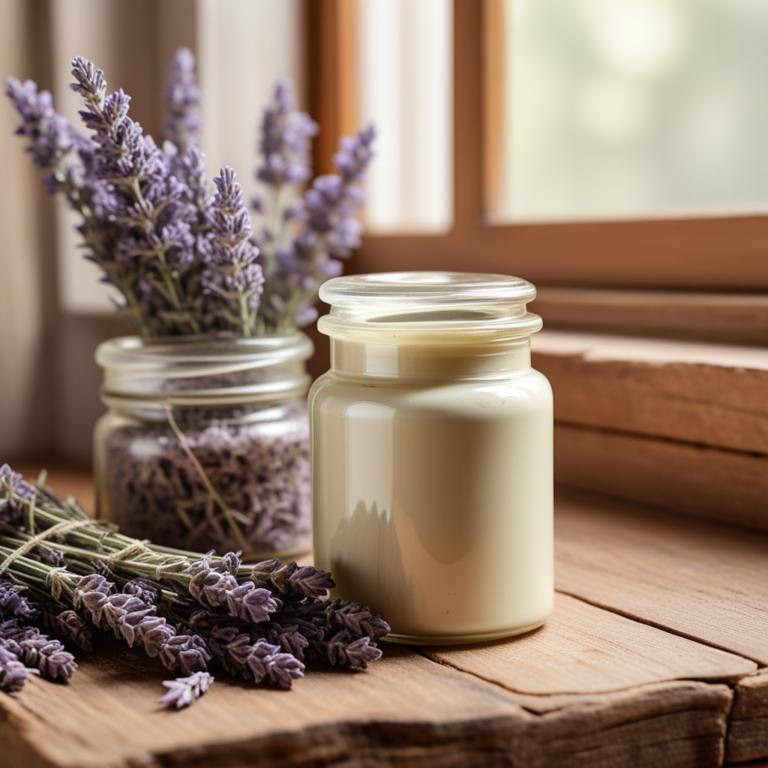
Herbal creams for oily hair are topical treatments made from plant extracts, designed to soothe and control excessive oil production on the scalp.
These creams offer several benefits, including reducing dandruff, preventing hair loss, and improving overall scalp health, making them an attractive alternative to chemical-based treatments.
Examples of herbal creams that can help alleviate oily hair include tea tree oil cream, which has antifungal properties to combat scalp infections; aloe vera cream, which helps to balance the scalp's pH levels; neem cream, which has antibacterial properties to reduce oil production; lavender oil cream, which calms the scalp and promotes healthy hair growth; and rosemary essential oil cream, which stimulates blood flow to the scalp and promotes hair growth.
By incorporating these herbal creams into your hair care routine, you can effectively manage oily hair and achieve a healthier, more balanced scalp.
N/A
Below there's a list of the 9 best herbal creams for oily hair.
- 1. Aloe barbadensis creams
- 2. Rosmarinus officinalis creams
- 3. Melaleuca alternifolia creams
- 4. Camellia sinensis creams
- 5. Eucalyptus globulus creams
- 6. Thymus serpyllum creams
- 7. Lavandula angustifolia creams
- 8. Echinacea purpurea creams
- 9. Salvia officinalis creams
Also you may be interested in...
TODAY'S FREE BOUNDLE
Herb Drying Checklist + Herbal Tea Shopping List + Medicinal Herbs Flashcards
Enter you best email address below to receive this bundle (3 product valued $19.95) for FREE + exclusive access to The Aphotecary Letter.
$19.95 -> $0.00
1. Aloe barbadensis creams
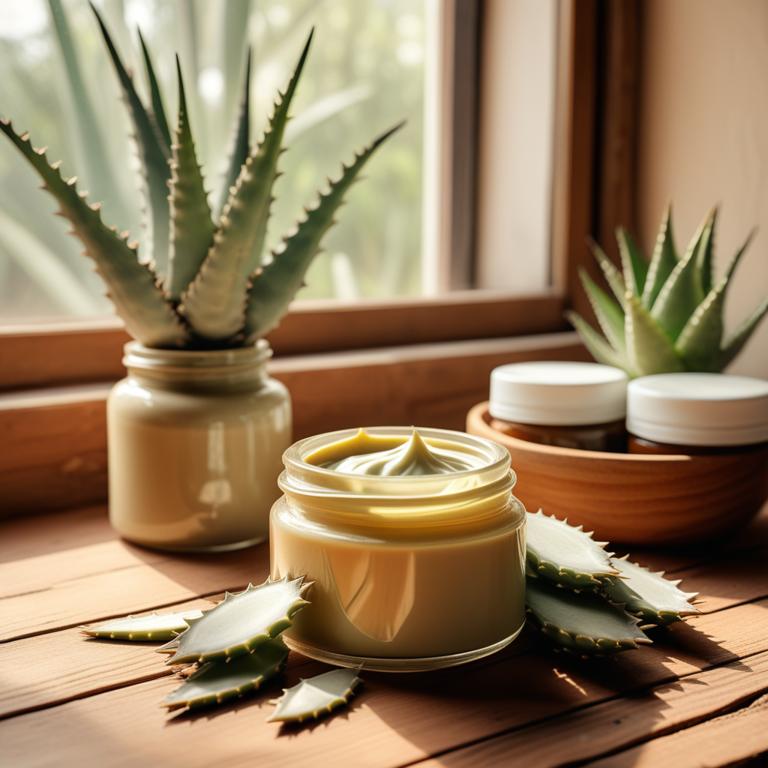
Aloe barbadensis creams are a popular herbal preparation used to treat oily hair, characterized by its soothing and moisturizing properties that help to regulate sebum production and balance the scalp's natural oil levels.
The bioactive constituents, including aloin, aloe-emodin, and vitamins A, C, and E, work together to reduce inflammation, calm irritation, and promote a healthy scalp environment, ultimately leading to a reduction in oily hair.
By gently cleansing and purifying the scalp, Aloe barbadensis creams help to remove excess oil and product buildup, while also nourishing the hair follicles to promote healthy hair growth.
The benefits of using Aloe barbadensis creams to treat oily hair include reduced oiliness, improved scalp health, and a more balanced and manageable hair texture.
Related Study
According to "Current topics in medicinal chemistry", Aloe barbadensis creams for oily hair may not be directly related to the treatment of oily hair, but it is mentioned as an alternative therapy that has been reported to demonstrate anti-dandruff activity by disrupting microbial growth associated with dandruff formation, suggesting it could potentially be beneficial for scalp health in individuals with oily hair.
2. Rosmarinus officinalis creams
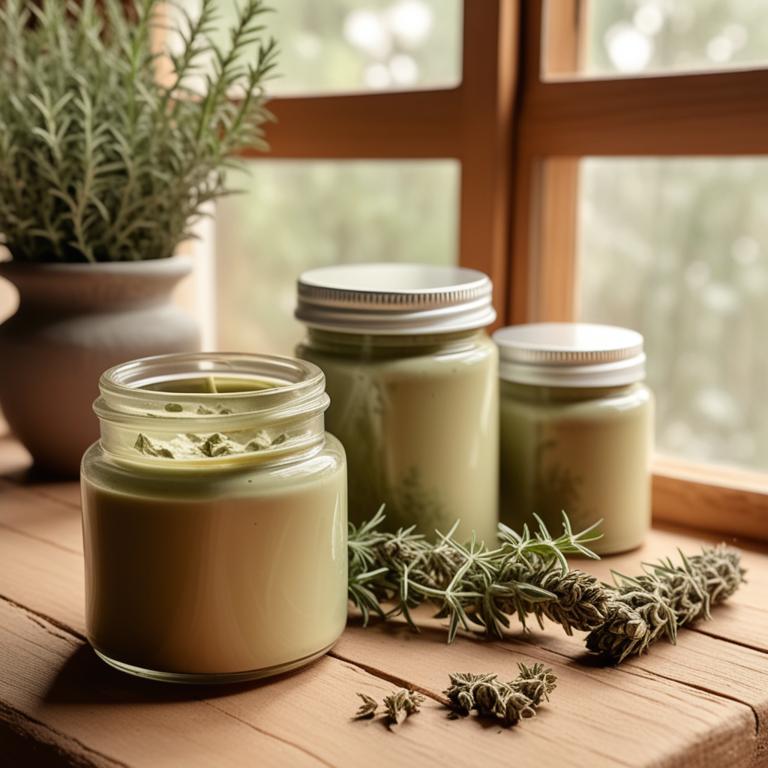
Rosmarinus officinalis creams have been used to treat oily hair ailment due to their antiseptic and astringent properties, which help to balance the scalp's natural pH and reduce excessive oil production.
These creams work by reducing the sebaceous gland's activity, thus controlling the amount of oil released onto the hair, making it easier to manage oily hair.
The bioactive constituents of Rosmarinus officinalis, such as camphor, borneol, and bornyl acetate, are responsible for its therapeutic effects, including its ability to reduce inflammation and promote hair growth.
By using Rosmarinus officinalis creams, individuals can benefit from a reduction in oiliness, a decrease in dandruff, and an improvement in overall scalp health, making it an effective herbal remedy for treating oily hair ailment.
3. Melaleuca alternifolia creams
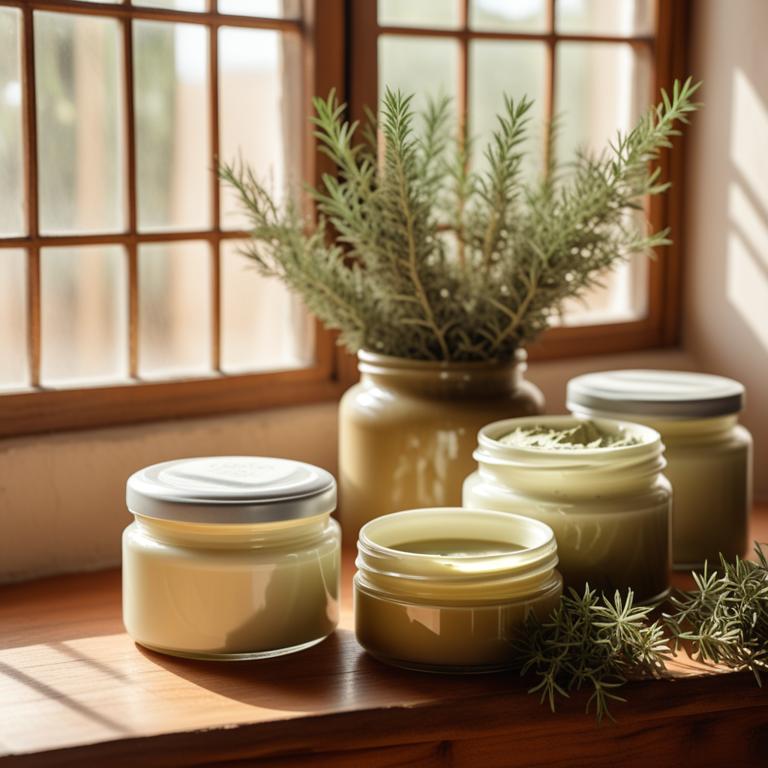
Melaleuca alternifolia creams have been widely used to treat the oily hair ailment due to their antiseptic and anti-inflammatory properties, which help to reduce the production of sebum and soothe the scalp.
This herbal preparation contains bioactive constituents such as cineole and terpinen-4-ol, which have been shown to exhibit antimicrobial and antioxidant activities that help to combat the root causes of oily hair.
By regulating the scalp's oil production and reducing inflammation, Melaleuca alternifolia creams help to normalize the hair's natural moisture balance, resulting in a healthier and more manageable hair texture.
The benefits of using Melaleuca alternifolia creams for treating oily hair include reduced oiliness, improved scalp health, and a more balanced hair care routine.
4. Camellia sinensis creams
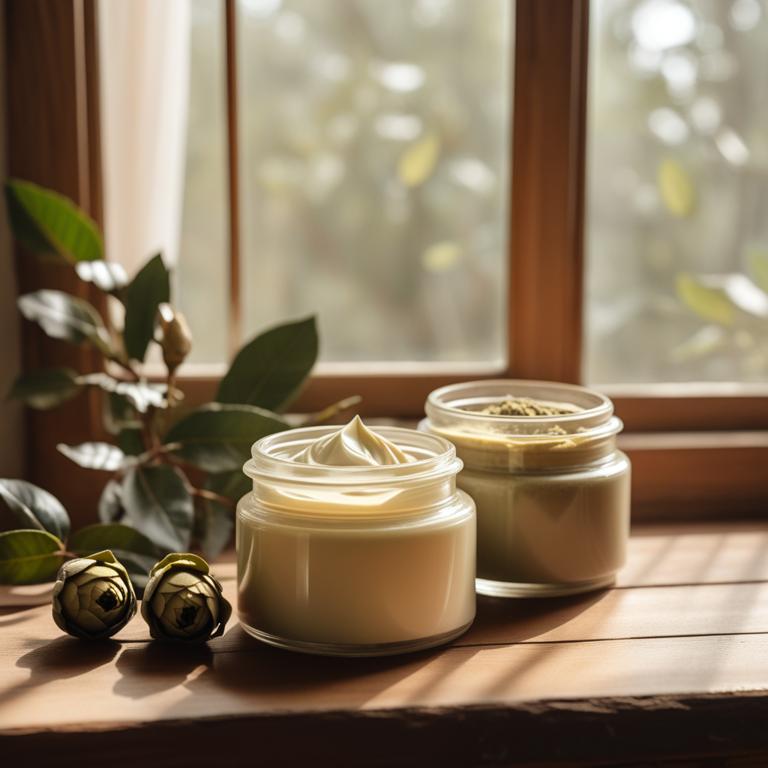
Camellia sinensis creams have been gaining attention for their potential in treating oily hair ailments due to their unique properties that help to regulate sebum production and balance the scalp's pH levels.
The bioactive constituents present in Camellia sinensis, such as catechins and theaflavins, have been found to possess antibacterial and anti-inflammatory properties that aid in reducing the growth of microorganisms that contribute to oily hair.
By using Camellia sinensis creams, individuals can experience a reduction in oiliness and a healthier scalp, ultimately leading to more manageable and balanced hair.
The benefits of using Camellia sinensis creams for oily hair treatment include reduced oiliness, improved scalp health, and a decrease in the risk of hair loss and dandruff.
5. Eucalyptus globulus creams
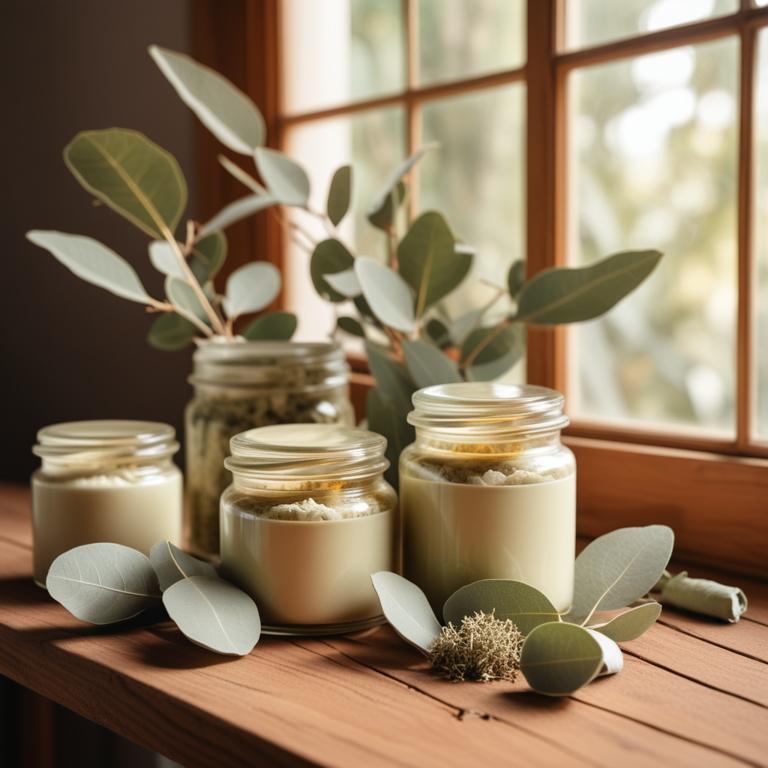
Eucalyptus globulus creams have gained popularity as a natural remedy to treat oily hair due to their antiseptic, anti-inflammatory, and astringent properties.
The bioactive constituents, such as cineole and eucalyptol, help to control oil production and balance the pH of the scalp, thereby reducing the greasiness of hair.
This herbal preparation also helps to treat oily hair by reducing the growth of bacteria and fungi that contribute to oiliness, leading to a healthier and more balanced scalp.
The benefits of using Eucalyptus globulus creams include a reduction in hair oiliness, improved scalp health, and a fresher, cleaner feeling for hair.
6. Thymus serpyllum creams
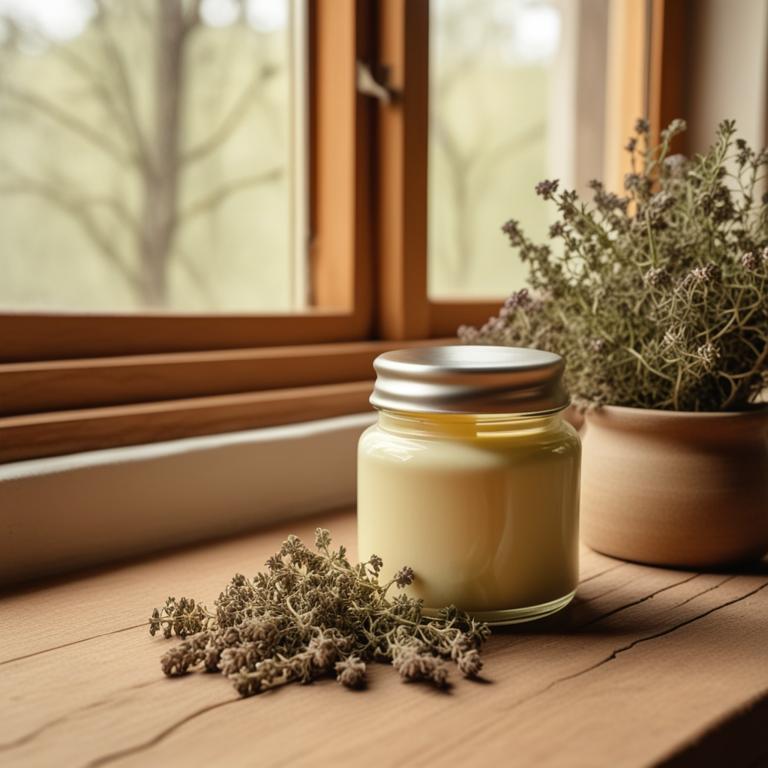
Thymus serpyllum creams are a natural herbal preparation used to treat oily hair ailments, primarily due to its astringent and antiseptic properties that help to balance the scalp's oil production and prevent the growth of bacteria and fungi that contribute to oily hair.
The bioactive constituents of Thymus serpyllum, including thymol and carvacrol, have been shown to exhibit antimicrobial and antifungal properties that help to control the overproduction of sebum and reduce the risk of scalp infections.
By applying Thymus serpyllum creams to the scalp, individuals can experience a reduction in oily hair and an improvement in scalp health, leading to a more balanced and healthy hair growth cycle.
The benefits of using Thymus serpyllum creams to treat oily hair include a natural and non-invasive approach to scalp care, reduced risk of side effects, and long-term improvement in hair quality.
7. Lavandula angustifolia creams
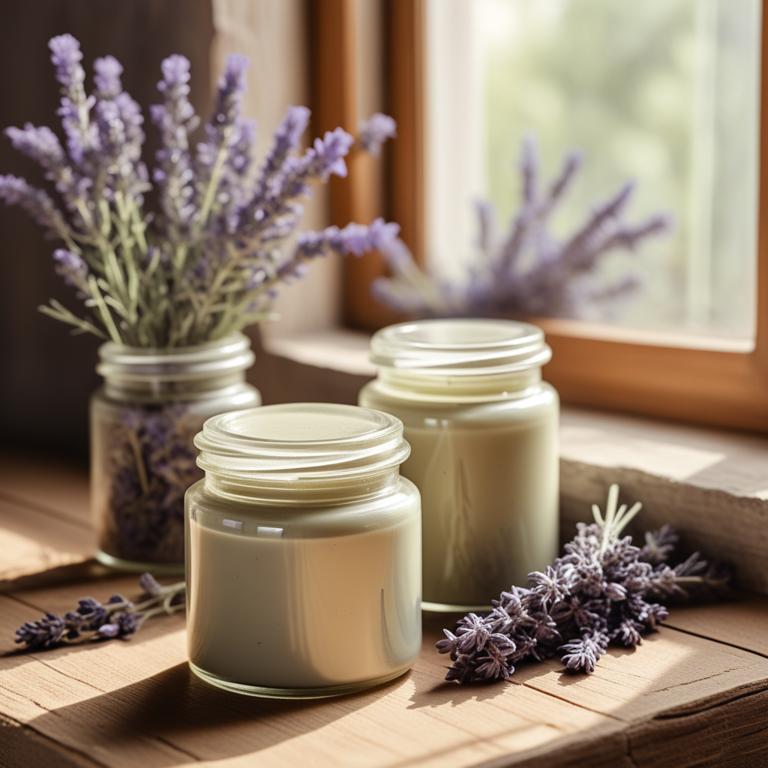
Lavandula angustifolia creams are a popular herbal preparation used to treat oily hair ailments due to their antiseptic, antifungal, and antibacterial properties, which help to regulate the scalp's natural oil production and prevent the growth of microorganisms that can exacerbate the condition.
The bioactive constituents of Lavandula angustifolia creams, including linalool and linalyl acetate, have been shown to possess a balancing effect on the scalp's oil glands, thereby reducing excessive sebum production and promoting a healthy hair growth.
These creams help to treat oily hair ailments by cleansing and purifying the scalp, reducing inflammation and calming irritations, ultimately leading to a balanced and healthy scalp.
The benefits of using Lavandula angustifolia creams for oily hair include a reduction in oil production, an improvement in scalp health, and a noticeable decrease in hair loss and dandruff.
8. Echinacea purpurea creams
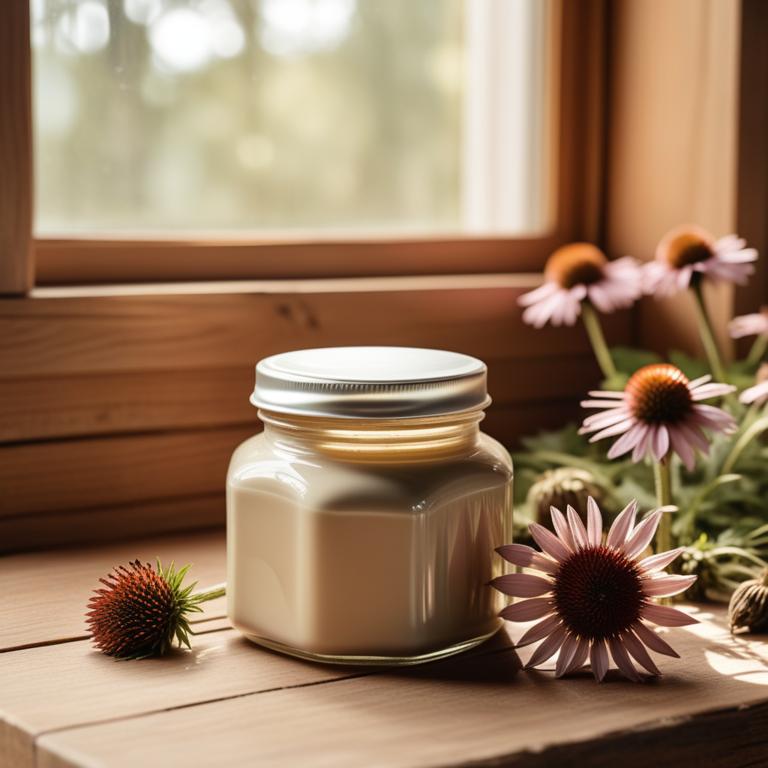
Echinacea purpurea creams have gained popularity as a natural remedy for treating oily hair, a common condition characterized by excessive oil production on the scalp.
The properties of Echinacea purpurea creams that help treat this ailment include their astringent, antiseptic, and anti-inflammatory properties, which help to balance the scalp's natural oil production and reduce inflammation.
The bioactive constituents of Echinacea purpurea, such as alkylamides and phenolic compounds, possess potent antioxidant and anti-inflammatory properties that help to soothe and calm the scalp, reducing oil production and preventing clogged pores.
Regular use of Echinacea purpurea creams can help to control oily hair, prevent dandruff, and promote a healthy scalp, making it an effective and natural treatment for this common hair care issue.
9. Salvia officinalis creams
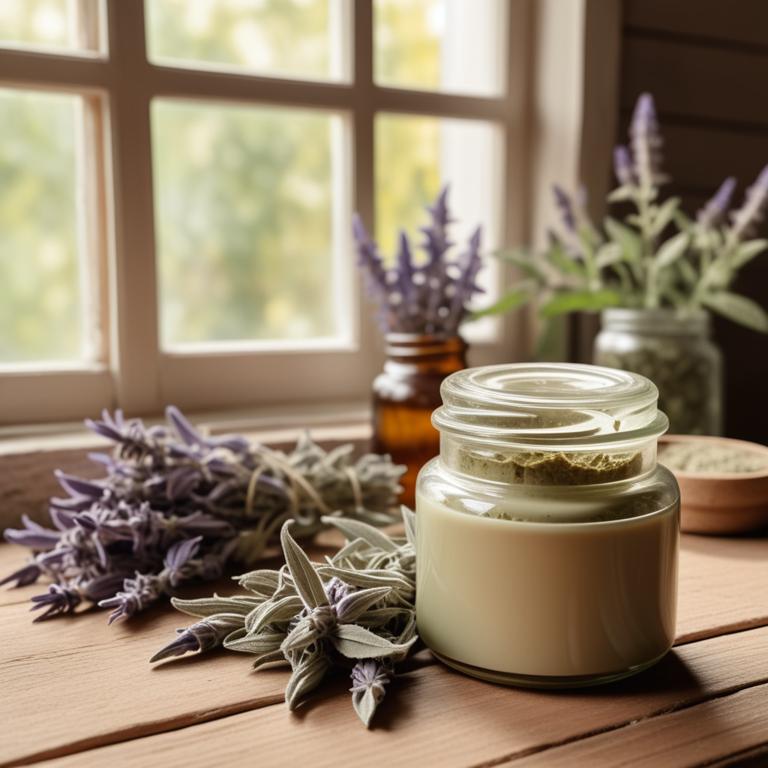
Salvia officinalis creams have been traditionally used to treat the oily hair ailment due to their antiseptic and astringent properties, which help to balance the scalp's pH and reduce excessive oil production.
The bioactive constituents present in these creams, including rosmarinic acid, ursolic acid, and camphor, contribute to their therapeutic effects by inhibiting the growth of pathogenic microorganisms and reducing inflammation on the scalp.
By regulating the scalp's natural oil production and reducing inflammation, Salvia officinalis creams help to alleviate the symptoms of oily hair, such as greasiness, dandruff, and itchiness.
The benefits of using Salvia officinalis creams to treat oily hair include a reduction in oil production, improved scalp health, and a cleaner, healthier-looking hair appearance.